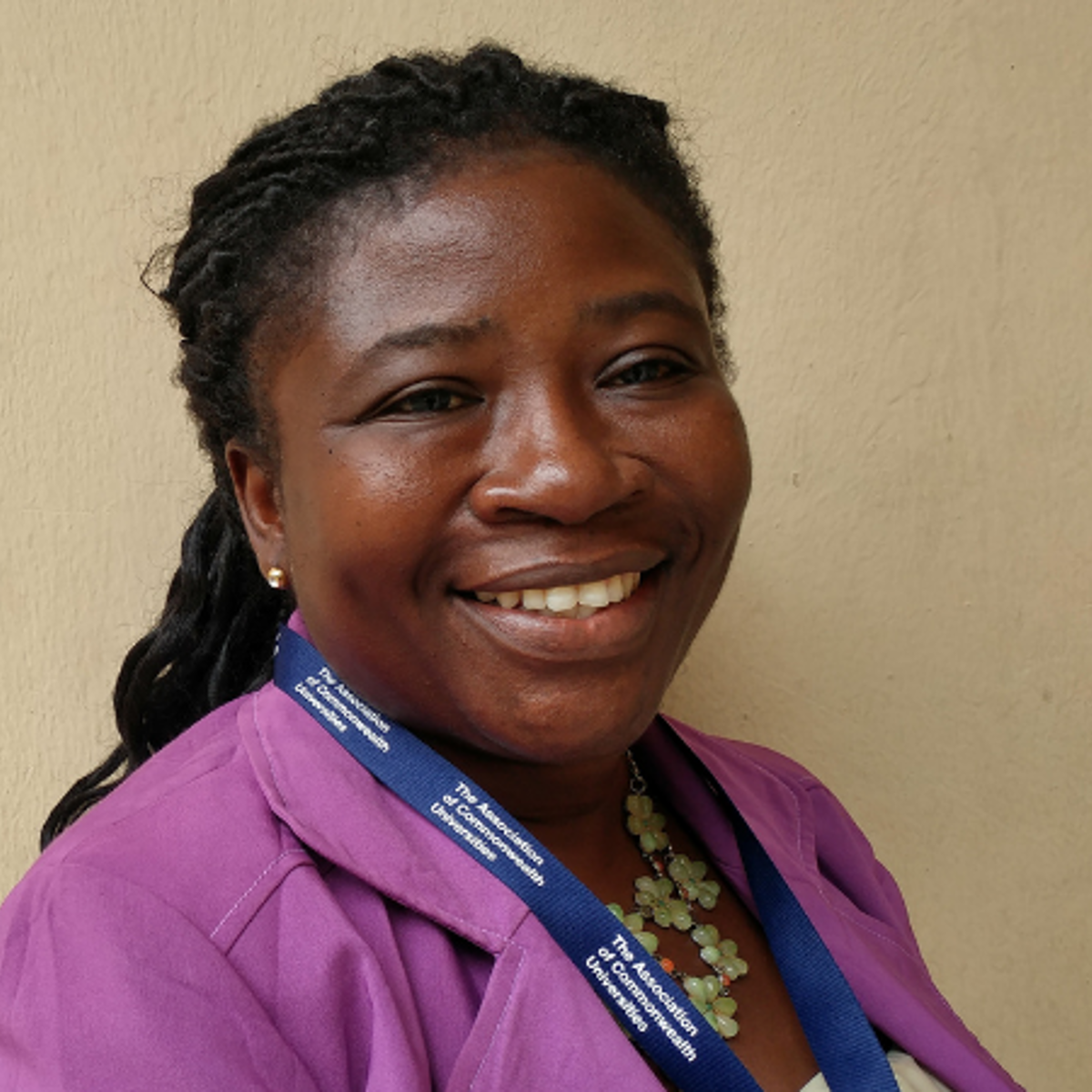By Mercy Derkyi


Dr Mercy Derkyi
When one of Dr Mercy Derkyi’s academic colleagues brought the good news that he had published a paper with his mentee, she was delighted. It was another success story resulting from a strong mentorship scheme at the University of Energy and Natural Resources (UENR), which Mercy played an instrumental role in establishing over the years.
'I see myself more as a social rather than a technical person,' Mercy muses. 'Anything that boosts peoples’ morale and confidence is a good achievement for me as a social scientist!'
As a senior lecturer at UENR’s Department of Forest Science and the Dean of the School of Natural Resources since 2019, Mercy is an expert in the fields of climate and agroforestry sciences who is also deeply embedded in the university community. Beyond being a teacher and researcher, she has been a mentor figure driven by a desire to help others succeed.
At UENR, Mercy supported the implementation of the CIRCLE Institutional Strengthening Programme (ISP) aimed at supporting universities to achieve their staff development and research ambitions. 'Through my involvement in the ISP, I contributed to making mentoring a pillar within the university,' Mercy explains. 'I helped introduced everyone to the mentoring process and the need for mentorship, and we successfully conducted mentor-mentee pairings.'


Academic mentorship is often a crucial ingredient for success in the professional trajectory of an early-career researcher. However, as is the case with many institutions in the region, mentorship tends to be conducted informally without extensive staff training. The ISP supported UENR to draft its first mentorship policy formalising the scheme, which was subsequently turned into a simple handbook and since shared with many universities in the locality.
Making climate action inclusive
Beyond the campus walls, Mercy is also working to empower rural community members to tackle the intensifying impacts of climate change. As an alumnus of the CIRCLE fellowship programme, Mercy reflects on a career-changing research experience which enabled her to connect with people living in climate-vulnerable regions of Ghana.
'My CIRCLE research looked at farmers’ responses to climate change in agricultural and forest landscapes and the gender responsiveness of policy implications,' Mercy describes. Her study area was the transitional zone of Ghana, a region which experiences higher levels of rainfall compared to the savannah region on its northern border.
Mercy found that climate change was beginning to dry up the transitional zone. 'What farmers are planting there is not surviving anymore. The rain doesn’t fall for them to get a good harvest, and there are just so many uncertainties in terms of planting time and how to overcome the situation.'


In the community, Mercy observed that people were taking up diverse coping strategies to deal with change. For example, many women were processing food products to add value and sell off-farm. They turned harvested cassava into a popular meal, gari, since it kept longer and carried a premium price.
With support from the CIRCLE research uptake fund, Mercy organised field trips which brought people living in the transitional zone to the savannah to learn from dry season farmers who have been historically cultivating with minimal rainfall. From this experience, she developed a simplified community climate adaptation manual for farmers to use in the transitional zone and beyond.
To further support knowledge pooling between the zones, Mercy spearheaded a multi-stakeholder symposium attended by the Ministry of Food and Agriculture, the Environmental Protection Agency, the Meteorological Agency and savannah farmers who shared their views with the transitional zone. Key strategies from the savannah were passed on to the transitional zone, such as dry season irrigation farming techniques, stone-bonding as an alternative mode of income, water harvesting for home gardens and more.
'It wasn’t an easy journey, but I received great support from people at UENR and my host institution, the University of Ghana,' Mercy says.

'Everyone has a role to play'
CIRCLE was Mercy’s first foray into climate research – and it greatly inspired her to continue. She spearheaded the establishment of a new Gender and Climate Centre at UENR, which today continues to grow and diversify. Mercy envisions the Centre becoming an accessible learning platform for climate change which draws perspectives from multiple disciplines and stakeholder groups. She also hopes the Centre will develop a strong arm for outreach and deliver on the University’s mission to service local communities.
For Mercy, empowering others brings the greatest joy. 'With respect to local communities, I want to give them the power to believe in themselves, to make visible what they do and every little thing they think is good,' she says. 'We want to continue documenting what farmers are doing amidst a crisis like climate change. It gives them a certain confidence and pride that people are giving recognition to what they do, and that’s the kind of impact I want to have.'
Mercy adds that much of her work is about giving back to those who supported her through her own journey. As for one of the core legacies of her work, Mercy reminds us that climate action is not in the purview of the few – but something in which everyone has a role to play.
'Whether you’re a woman, a man, in one community or another, you have a role to play - it can even be how you manage agriculture and the land.'

The CIRCLE Programme was funded by the UK Foreign, Commonwealth and Development Office (FCDO), led by the Association of Commonwealth Universities and delivered in partnership with the African Academy of Sciences (AAS), Vitae UK and the Natural Resources Institute (NRI) of the University of Greenwich.
The CIRCLE programme works to strengthen climate change research within sub-Saharan Africa through an innovative dual approach. The CIRCLE Visiting Fellowships Programme supported 97 outstanding African researchers to undertake research into local climate impacts, while the CIRCLE Institutional Strengthening Programme worked with 31 universities across 10 countries to improve institutional capacity to support and promote quality research.
